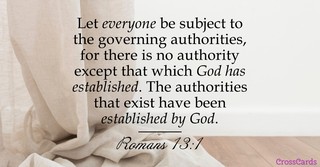
- Recent Translations
- All Translations
Romeinen 13:9
Share
Settings
Images for Romeinen 13:9

Romeinen 13:9 Meaning and Commentary
For this, thou shalt not commit adultery
The apostle here reckons up the several laws of the second table, with this view, that it might appear that so far as a man loves his neighbour, whether more near or distantly related, he fulfils the law, or acts according to it. He omits the first of these, the fifth commandment, either because he had urged this before, so far as it may be thought to regard magistrates; or because, according to the division of the Jews, who reckon five commands to each table, this belonged to the first: and he puts the seventh before the sixth, which is of no great moment; the order of things being frequently changed in the Scripture, and which is often done by Jewish writers, in alleging and citing passages of Scripture; and with whom this is a maxim, (hrwtb rxwamw Mdqwm Nya) , "that there is no first nor last in the law" {c}; that is, it is of no importance which stands first or last in it: it follows,
thou shall not kill, thou shalt not steal, thou shalt not bear false
witness, thou shalt not covet;
which are the sixth, eighth, ninth, and tenth commands of the decalogue, ( Exodus 20:13 Exodus 20:15-17 ) :
and if there be any other commandment;
of God, respecting the neighbour, either in the decalogue, as there was the fifth, ( Exodus 20:12 ) , or elsewhere, the apostle repeating this by memory:
it is briefly comprehended in this saying, namely, thou shall love
thy neighbour as thyself;
see ( Leviticus 19:18 ) ; this is the summary and epitome of them; so Christ reduces the laws of the first table to the head of love to God, and those of the second to the head of love to the neighbour, ( Matthew 22:37-39 ) , as the apostle does here, and in ( Galatians 5:14 ) , and the Apostle James, in ( James 2:8 ) .
F3 T. Bab. Pesachim, fol. 6. 2.
